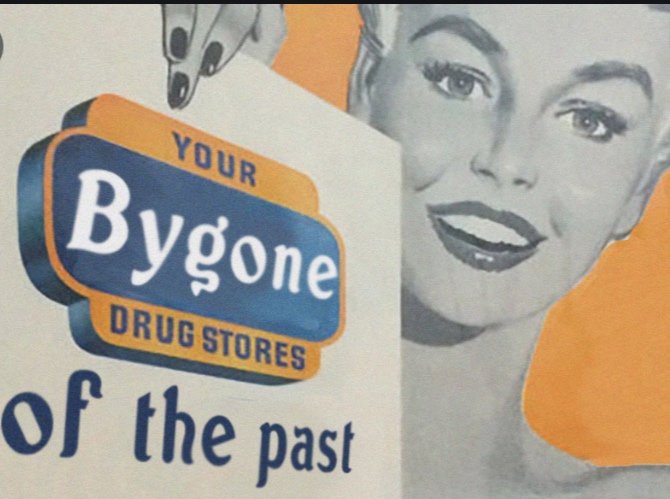Last Pharmacy
by Mara Kurtz
Word Count 937
When my husband left me the first time, we were living in a small apartment on the Upper East Side with our baby.
Two years later, willing to “give it another try,” he found a huge apartment on Park Avenue for a bargain price. “Maybe we’ll get along in a bigger space,” he said.
Fourteen rooms weren’t enough to save our marriage. After five years, Don announced, “I’m leaving, this just isn’t making me happy.” Those were the exact same words he used when he walked out the first time.
I thought there was probably someone else. One night, sitting in a taxi on the way to my mother’s house, I glanced up at the building his assistant lived in and saw him standing in the kitchen holding a wine glass.
Two months later, he broke into my apartment with a detective who took a picture of my friend Gary’s raincoat draped on a chair in the kitchen. The next day I was served with papers accusing me of adultery.
We signed our divorce papers in front of a short, feisty judge who looked like Edward G. Robinson. Don claimed he was “dead broke.” The community property law hadn’t passed yet. The judge awarded him the Park Avenue apartment, now a co-op, and our old farmhouse on eastern Long Island, a gift from my parents. I cried and told the judge we’d both signed the deed for the apartment. “Your name’s not there now,” he replied. “Shut up and sign or you’ll get nothing young lady.”
As Don walked past me outside the judge’s chambers, he stopped to grab my arm.“You have two months to get out of the apartment,” he said next to my ear. “ Or I’ll throw you and your stuff into the street.”
Suddenly, my financial circumstances were desperate. My graphic design business dwindled while I was distracted and my father, recovering from a serious heart attack, had to close his business and couldn’t help. With Don’s eviction threat looming, I finally settled on a tiny two bedroom on West Seventy-Ninth Street and Amsterdam Avenue. After signing the lease and paying a month’s security, two-months rent, and $1,500 for a paint job, I was broke.
I hated the new apartment. The living room/dining room, really just one room, faced a huge white brick building across the street that resembled a jail, with row after row of perfectly symmetrical windows with black metal frames. A miniscule kitchen had what the brokers call “a city view,” which meant it looked at the tops of nearby buildings rather than directly into someone’s bedroom. The tiny bathroom’s cramped shower made it difficult to even turn around. A filthy window faced an air shaft.
I avoided the apartment for weeks, returning just once for a few minutes to show my daughter her new room. All she said was, “Gee, it’s small. Where am I going to put my toys?” Forced to ride down in a creaky back elevator, I stared at the surly, unshaved porter wearing stained brown pants and a dirty striped shirt. As he slid the metal gate to let us out, I asked about the banging sounds above one of our bedrooms. “The kid upstairs practices his drums after school,” he mumbled.
By September there was just one week left until we had to move to this new apartment. Knowing that I had to come to grips with the upcoming move, I took a cab to West Seventy-Ninth Street carrying my mother’s old Electrolux vacuum cleaner and a 1960’s orange plastic lamp that looked like a molded mushroom. Shafts of sunny light filtered through the blinds in the empty living room as I sat on the floor, leaning against a wall. Looking at the building across the street– “the prison”-- I thought of my mother’s photograph of me as an innocent little girl sitting on my aunt Sally’s porch. It was a whole world away from this dreadful place that was now my home.
On the street outside, I stopped in front of the window of the drugstore housed at the base of my building whose display looked like a throwback to the 1950’s. Long branches with pink and white cherry blossoms surrounded English talcum powder tins, scented soaps and delicate cologne bottles. Stepping back to admire the nostalgic panorama, I looked up at the large sign above. The curved letters were formed by rows of glowing neon tubing spelling out “LAST PHARMACY.” The words gave me a chill. They seemed like an ominous omen.
I couldn’t sleep that night. At daybreak I decided I would not move out of the apartment. I didn’t care if Don threw everything out the window. There was something liberating about my decision. I stopped planning my move and simply hoped that it would all work out by some kind of miracle.
And there actually was a miracle. Sitting in the waiting room of my dentist’s office one morning, I picked up a business magazine. Don’s picture was on the cover next to a headline announcing the sale of his business for five million dollars. After sending the story to my attorney, he threatened to reopen the case, arguing that Don intentionally hid the sale of his business in order to avoid paying alimony. The matter was settled out of court when Don agreed to buy me an apartment.
Ten years later, a story in The New York Times “Metropolitan Diary” noted the closing of a neighborhood icon called LAST PHARMACY. When asked for his reaction, the owner of fifty years answered, “Sometimes you just have to take it as it comes.”
Mara is a graphic designer, photographer and illustrator and founder of Mara Kurtz Studio.
Her work has been published in numerous publications including Metropolis, New York Times Magazine, New York Magazine, Conde Nast Traveler, Travel and Leisure, and The Wall Street Journal.
